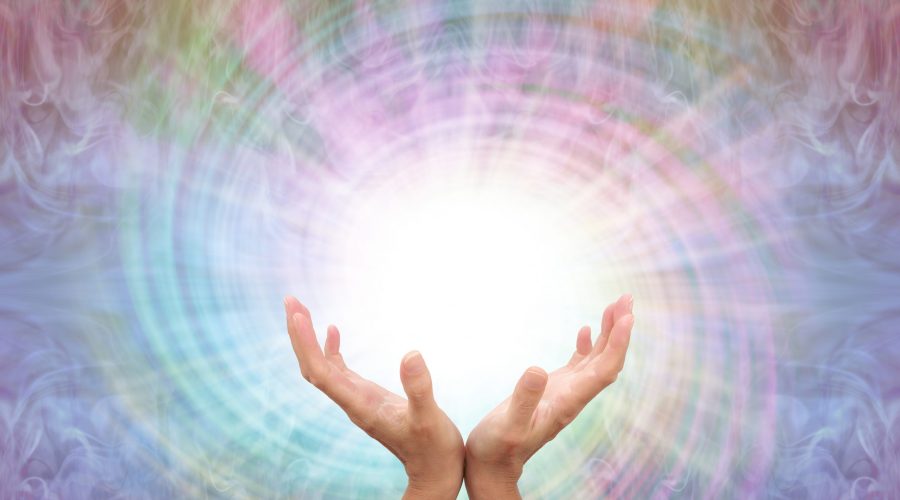If you’re feeling out of sorts but can’t put your finger on why, you may have an imbalance or blockage in your “Qi” energy system. The concept and meaning of Qi energy is an integral part of Eastern medicine and philosophy, dating back thousands of years.
But what is it? And what is the theory of Qi energy?
In this article, we explore the definition, origins, and fundamental theory of Qi energy (sometimes called chi energy). You’ll also learn how to cultivate strong Qi for mental and physical well-being.
What is meaning of Qi energy?
According to traditional Chinese medicine, Qi – pronounced chee – refers to the “vital energy” or “life force” that flows through every person, every organism, and everything in the universe. There is no life without Qi.
Just as blood and lymph move through your body, traditional Eastern medicine believes Qi flows through you in the same way.
Along with yin and yang, qi energy make up form the fundamental roots of Chinese medicine.
What are the origins of Qi?
The concept of Qi energy dates back more than 5,000 years. It originates from Eastern medicine and philosophy and is one of the core principles of traditional Chinese medicine (TCM) and Chinese Martial Arts. Many forms of TCM, like qigong, tai chi, acupressure massage, and acupuncture, focus almost entirely on cultivating a healthy flow of Qi through the body.
But Qi isn’t unique to TCM – other forms of traditional Eastern medicine have the same concept. In traditional Japanese medicine, it’s called “ki”. In Ayurveda, it’s known as “prana”.
If you’re new to Eastern medicine, the theory of Qi can sound confusing. Let’s explore it some more.
What is the theory of Qi?
According to TCM, Qi is the vital energy that determines a person’s health. It flows through a network of 12 major energy meridians – or pathways. The invisible energy pathways are like rivers that transport subtle energies through organ systems around your entire body.
A strong flow of Qi through the meridians results in good health, well-being, focus, motivation, and energy. When Qi becomes weak or stagnant and energy meridians blocked, low vitality, pain, and illness can occur.
Types of Qi energy
TCM understands that there are three sources of Qi in the body:
Yuan Qi: This is inherited from your parents and remains with you from conception.
Hou tain Qi: This is the qi you get throughout your life from the food you eat, the air you breathe, the water you drink, and the exercise you do. It’s absorbed by your body and distributed via your energy meridians.
Wei Qi: Also known as defensive Qi, this serves the purpose of protection from pathogens and illnesses. It’s akin to a protective shield around your system. Interestingly, this also comes from the outside – your diet, the air you breathe, and your environment.
Each organ also has its own vital Qi — such as spleen-Qi, heart-Qi, kidney-Qi, etc.

How do I know if I have healthy Qi energy?
In TCM, balance is everything. Signs of free-flowing, balanced Qi include:
- Plenty of energy
- Stress resilience
- Strong immunity
- Optimal digestion
- Strong endurance
- Clarity of mind
- Feeling well-rested
People with weak Qi may be fatigued, have poor appetite and digestion, feel cold, and come down with frequent infections. On the other hand, a Qi excess can cause anger, irritability, anxiety, and a busy mind.
What creates a Qi imbalance?
Blockages and imbalances in your Qi energy system are caused by lifestyle factors that prevent your body from functioning optimally. This may be ageing, lack of exercise, nutrient deficiencies, toxin exposure, infections, sleep deprivation, stress, trauma, and an unhappy job or relationship.
Our stressful modern lives often work against us by draining Qi energy!
What can improve the flow of Qi energy?
Balancing and enhancing Qi depends on nourishing your body well by using daily habits to support your mental and physical health.
For strong Qi, follow these simple tips:
- Eat fresh, whole foods daily
- Engage in moderate exercising regularly
- Get sunlight exposure in the morning
- Ensure you’re getting enough quality sleep
- Breathe clean air
- Prioritise social connection
- Cultivate an attitude of mindfulness
- Breathe deeply and consciously
- Maintain a healthy posture
- Ground yourself regularly by getting in direct contact with grass, soil, or sand
Reducing stress and improving self-care with therapies like breathwork, tai chi, qigong, reiki, and acupuncture also balance Qi. These practices are central to TCM. They work with the energy meridians, helping to remove Qi blockages and get your vital energy flowing freely again.
Final thoughts
We hope this article has helped you better understand the role of Qi energy in health and well-being! Qi is one of the fundamental pillars of TCM and enhancing this powerful system may be the key to a healthy, happy life.
DISCLAIMER: The Site cannot and does not contain medical / health advice. The medical / health information is provided for general informational and educational purposes only and is not a substitute for professional advice. Accordingly, before seeking any form of medical advice, diagnoses or treatment based upon such information, we encourage you to consult with your GP or other qualified health practitioner. You must never disregard professional medical advice or delay in seeking it because of something mentioned on this Site. The use or reliance of any information contained on the site is solely at your own risk.





